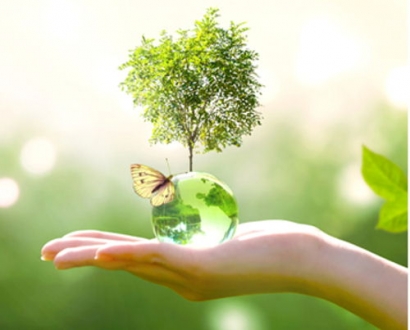
But, with the latest coronavirus pandemic spreading across the globe, we’re starting to see what happens when a world of people waits too long to address a problem. Thankfully, many places in the world began to see the devastating effects of this pandemic and acted quickly to mandate social distancing, restrict gatherings and close down public areas as a way to reduce the spread. However, many question whether or not these actions should have been put into place much sooner. This is the danger of waiting too long to address climate change. We do not want to wait until the effects are altering life as we know it before we begin implementing new policies. Everyone can do their part by simple acts likeusing eco-friendly packaging, recycling properly and biking or walking more frequently.
How Are the Coronavirus Pandemic and Climate Change Similar?
Although one of these world problems is a pandemic disease and the other is a human-caused natural crisis, they have a lot in common. The most obvious commonality is that these are major issues which affect every single human being in the world. These problems are not area specific, though when it comes to climate change, there are many areas that will feel the effects harder than others in the beginning.
Affected By the Rising Global Population
Both the coronavirus and climate change have become bigger issues due to the world population growing so drastically and exponentially. With more than 7.5 billion people in the world, it was very easy for the novel COVID-19 virus to spread from country to country, particularly because of globalization. We are more connected to each other than ever before as people travel for work and pleasure thousands of times each day. With all this travel, and the sheer number of people that are alive, it was very easy for the virus to become a pandemic.
When it comes to climate change, the rising world population has a huge effect on carbon emissions. The more people we have, the more resources we use, which of course means, the more carbon we release into the air. Some people even predict the world may have as many as11 billion people by 2100. It’s important we put structures and policies into place now to help reduce those emissions and hopefully even find a way to remove some of the CO2 already in the atmosphere. If we wait too long, we will find our lives once again flipped upside down, forcing us to make dramatic changes to everyday life.
People Fear an Overreaction
When word the coronavirus had made it overseas to the United States and citizens began hearing about government restrictions, like closing down restaurants, bars, schools and limiting the number of people at public gatherings, many questioned if officials were vastly overreacting. A lot of Americans even ignored some of these warnings and decided to go on with their travel plans, further exposing themselves and potentially spreading this deadly disease.
However, it became clear over the following weeks just how important these strategies were. This is how it needs to be with climate change. People may feel that new regulations are extreme, but we need to act. At the beginning of the coronavirus pandemic, people felt the restrictions in place were an overreaction, but now we can see how important precautionary measures are. We need to institutionalize this same attitude towards climate change as soon as possible to save ourselves and our posterity.
Government Needs to Step In
With the pandemic, it took government officials announcing mandated closures to actually get people to stay home and stop traveling. It can be difficult to trust individual citizens to take the proper precautions without requiring that they follow these rules. It would have been absurd to simply recommend parents to keep their kids home from school or that business owners shut down on their own accord. People need guidance from the government, too, on how to limit their carbon footprint through actions, like recycling, using biodegradable packing peanuts, riding your bike or composting. And, we, as a society, also need the government to legally restrict us from doing things that are proven to very negatively impact the Earth’s CO2 levels, like burning fossil fuel. We need institutionalized changes like relying more on alternative energy sources and creating laws that penalize companies using practices that are creating massive amounts of waste.

